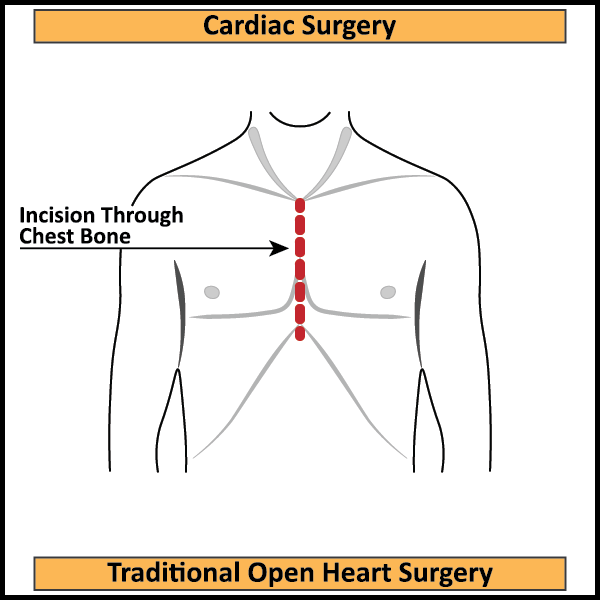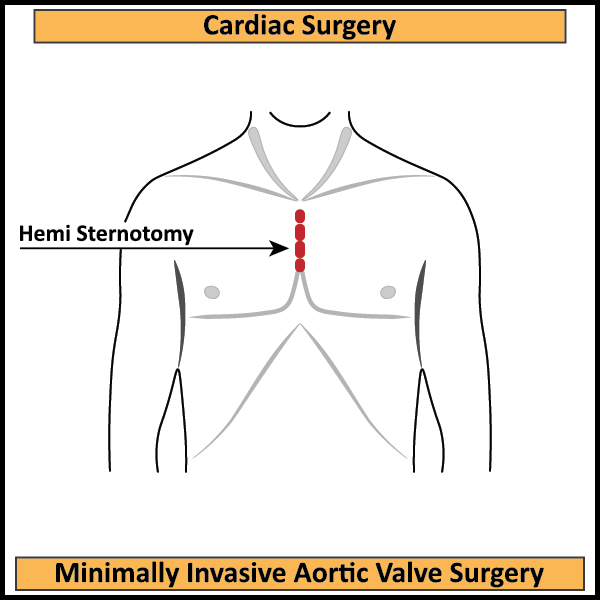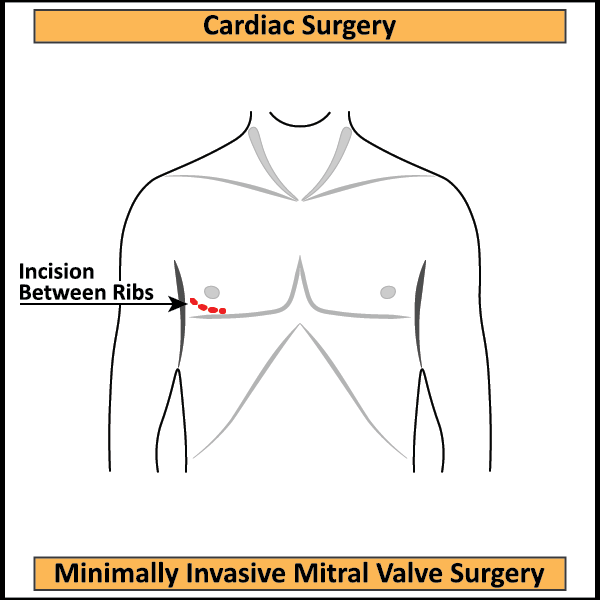Pathology:
Bio-prosthetic implants usually have a limited life cycle of upto 15 years as per manufacturers claims. As patients receiving these implants are now able to lead healthy lives beyond the operational life of their implants, a surgery to replace the degenerated valve may be recommended. Alternatively, new blockages in Coronary arteries, Aneurysms, Prosthetic valve endocarditis (Infection) may also require Redo Surgery.
Due to prior surgical procedure, the heart tissue tends to adhere to the breast bone (Sternum) and Pericardium. The heart tissues need to be carefully released from these surrounding adhesion to reduce the risk of bleeding and injury to the heart. Hence, Redo Surgery needs to be carefully planned. Redo Surgeries are performed only by experienced Cardiac Surgeons.
Treatment:
In addition to the usual investigations needed to diagnose the underlying heart disease itself, the Surgeon will ask for CT Scan. The CT Scan provides excellent information about the adhesion of the Heart Tissue to the Breast Bone (Sternum). The information is used to plan as assess the risk involved in the Redo Surgery.
There are 2 approaches to performing Redo Surgery.
- Conventional Redo Surgery: The chest bone (Sternum) is split vertically to access the heart.

- Minimally Invasive Redo Surgery: A small incision is made through the rib cage to access the heart. The procedure requires special instruments and techniques. This approach has its own limitations and is not applicable in all cases.

Salient Features of Redo Surgery
- The short term as well as long term quality of life improves significantly. Feedback from patients indicates their life being restored to what it was after their initial surgery.
- If Minimally Invasive Redo Surgery is performed, the size of incision is significantly smaller than conventional surgery. The patient recovers faster, spends lesser time in the hospital and quickly returns to their normal routine. The patient experiences significantly lesser pain after surgery and has lesser blood loss.
- CT Scans provides vital information prior to surgery and has reduced risk during the surgery significantly.


